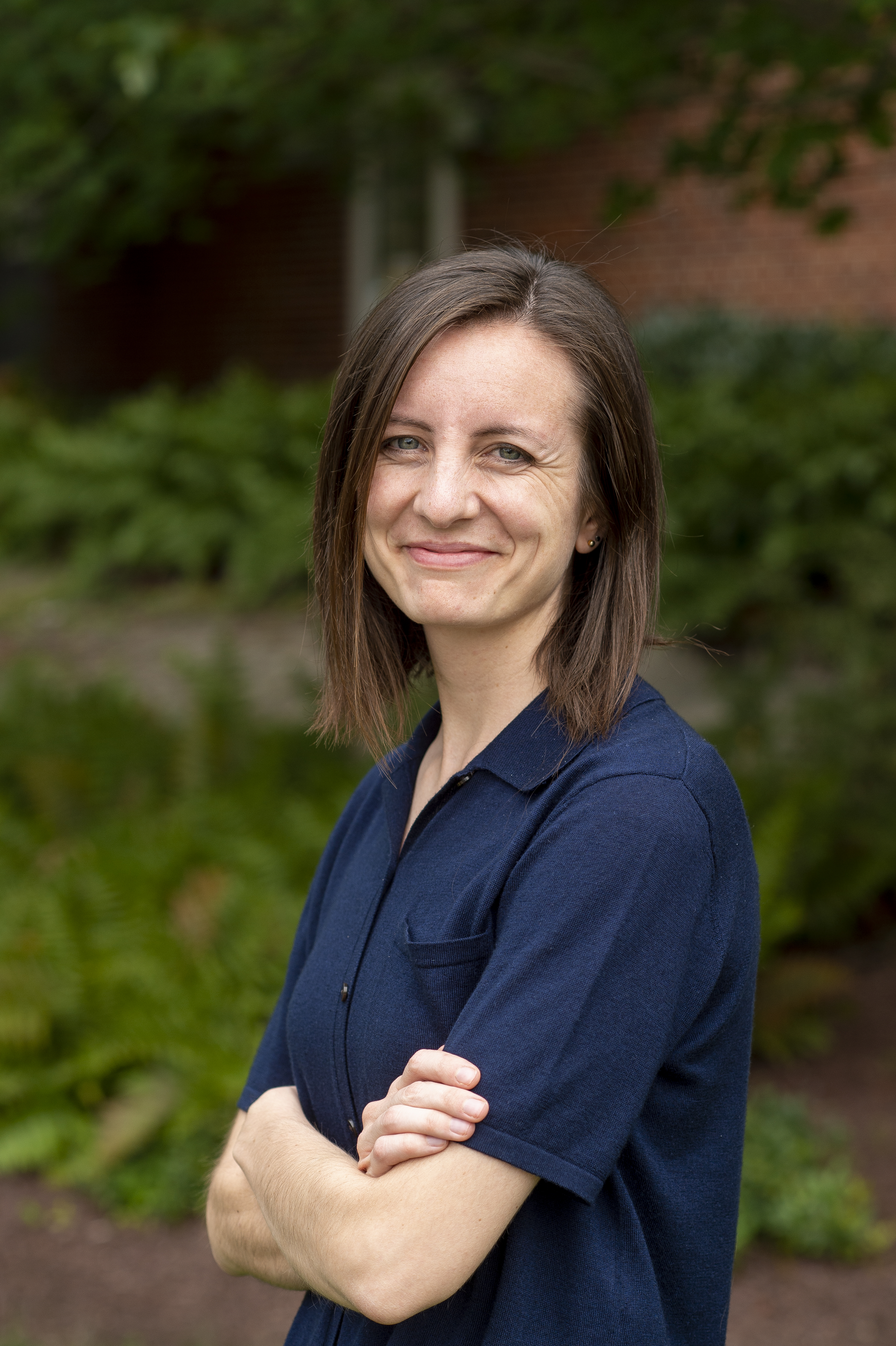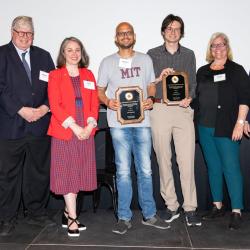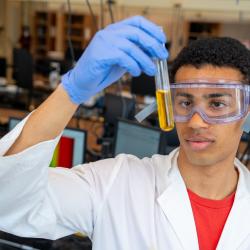Assistant Professor Mercedes Taylor Named Moore Inventor Fellow
Assistant Professor Mercedes Taylor has been selected as a Moore Inventor Fellow by the Gordon and Betty Moore Foundation. She will receive $825,000 over three years to advance her research developing novel materials with applications in water purification and precious metal extraction from water.

Created in honor of scientist and inventor Gordon Moore, the Moore Inventor Fellowship seeks to identify and support scientist-inventors who create new tools and technologies with a high potential to accelerate progress in scientific discovery, environmental conservation and patient care. The fellowship focuses on supporting scientist-inventors at critical stages in their invention journey to capture opportunities that otherwise might be missed.
“I feel very honored and grateful to have received this award,” Taylor said. “This is the first grant that I have received since I started at the University of Maryland, and it highlights to me that the work that we’re doing is going to continue and become more and more successful because of the financial support.”
This is a highly selective award, with only five Moore Inventor Fellows from a variety of disciplines selected annually from 200 nominations from top universities in the United States. Taylor is the first UMD faculty member to be selected for the Moore Inventor Fellowship.
“Mercedes is utilizing the power of chemical innovation to address pressing societal problems that put our world and way of life at risk,” said Janice Reutt-Robey, chair of UMD’s Department of Chemistry and Biochemistry. “Her synthesis of new materials is inspired and directed by real-world problems.”
Taylor and her research team will use the Moore Inventor grant to advance their efforts to design novel materials that are porous at the molecular level and could be used to capture and remove valuable metals that are dissolved in water. More specifically, this work targets metals that are used to make the batteries that power everything from our mobile phones to electric vehicles.
“This funding really opens the door to an area that I’m super excited about: capturing particular metals from water,” Taylor explained. “The specific metals that this research grant is focused on are cobalt, manganese and nickel. Those metals are increasingly valuable because they’re needed for batteries that are used in all kinds of modern technology. “
A major goal of Taylor’s research is to help make supply chains for all kinds of batteries more sustainable by developing technology that taps into a new supply source: seawater.
“A major problem with the supply chains for the metals that we need to make batteries is that they come from mining, and there’s only a given amount of these critical metals in the Earth’s crust,” Taylor noted. “Our aim is to make some really interesting kinds of materials—and we’re making them in a new way—in the hopes of selectively capturing these valuable metals from water and making the supply chains for batteries more sustainable.”
For Taylor’s lab, this research is also part of a bigger mission—designing novel materials that can remove contaminants in water to create not just new sources of valuable metals but new sources of clean water as well.
“Water scarcity around the world is intensifying due to population growth and climate change, so we need new sources of pure water. That’s the flip side of this coin of capturing metal ions from water,” Taylor explained. “My research group tries to accomplish two good things: we would like to get pure water and get valuable things out of the water as well, and we think we can do both of those things.”





